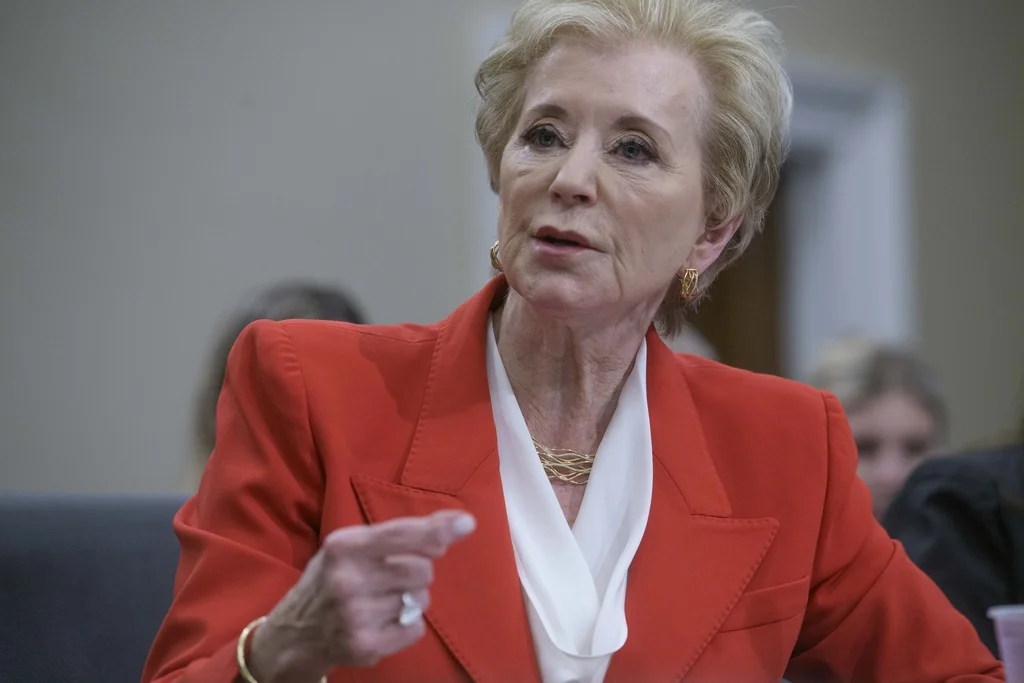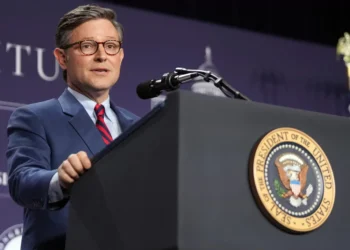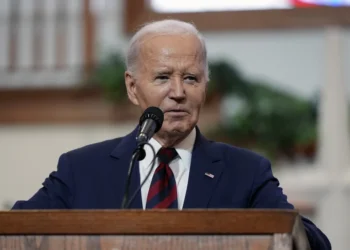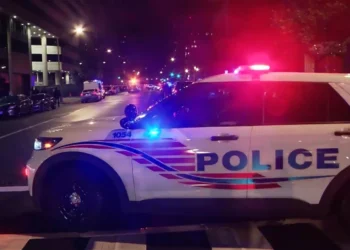The Department of Education opened a civil rights investigation into Virginia’s Fairfax County Public Schools over concerns that its new admissions policy for Thomas Jefferson High School for Science and Technology illegally discriminated against Asian American students.
Education Secretary Linda McMahon announced the investigation on Thursday, which will be conducted in conjunction with scrutiny from the Justice Department into TJ. The announcement of the investigation came the day after Virginia Attorney General Jason Miyares announced his office found FCPS guilty of intentionally discriminating against American students through the admissions policy, which he said violated the Virginia Human Rights Act and Title VI of the Civil Rights Act. Miyares referred the case to the Education Department on Wednesday, saying the admissions policy was “not about expanding opportunity,” but about “excluding and eliminating based on race.”
“Thomas Jefferson High School in Fairfax County has long had a reputation for producing some of our nation’s brightest minds, due in no small part to its rigorous admissions process. The Fairfax County School Board’s alleged decision to weigh race in TJ’s admissions decisions appears to be both contrary to the law and to the fundamental principle that students should be evaluated on their merit, not the color of their skin,” McMahon said in a statement announcing the civil rights investigation.
Gov. Glenn Youngkin (R-VA) praised McMahon for opening the investigation. He said the school board had “dashed” the dreams of many Asian American students.
Often ranked the best public high school in the country, TJ has historically been known as Fairfax County’s flagship STEM magnet school and has maintained a highly competitive race-blind and merit-based admissions process, with requirements including passing three competitive standardized tests, grade-point averages, completion of certain math classes, and teacher recommendations.
The debate over TJ’s admissions policy started in 2020, when the country was rocked with protests calling for racial equity in the wake of George Floyd’s death. Amid the racial turmoil, TJ’s student demographic came under scrutiny. In 2020, 73% of the school’s incoming freshmen were Asian, just over 17% were white, 3% were Hispanic, and the number of black students was so low that the district suppressed the data, according to the Virginia Mercury.
In response to concerns that the student body was too homogenous, FCPS Superintendent Scott Brabrand announced he would enact aggressive changes to the admissions process to fashion a more diverse population “representative” of northern Virginia.

In October 2020, the school board approved several changes to the admissions process in an effort to bring more diversity to the student body by encouraging more black and Hispanic students to apply. The year after the changes were implemented, Asian enrollment plummeted, with 11% of admission offers going to Hispanic students, 7% to black students, 22% to white students, and 54% to Asian students.
The changes included canceling a $100 application fee and eliminating the standardized admissions testing, traditionally a key part of the evaluation process that Brabrand argued “tends to reflect upon the socioeconomic background of test takers or the ability for students to obtain private test preparation.” The changes also altered minimum academic requirements by guaranteeing seats for 1.5% of each middle school’s eighth grade class and awarding bonus points for factors such as attendance at each participating middle school in the district deemed previously “underrepresented” at TJ.
Multiple lawsuits have been filed to halt the admissions changes, with critics saying they illegally prioritize race as part of the applicant process and unlawfully discriminate against Asian students. Critics have further accused Brabrand of anti-Asian bias, allegations that school board members admitted were true, according to internal messages released by the Virginia Attorney General’s Office.
“There has been an anti asian feel underlying some of this, hate to say it lol,” one board member said to a colleague. Asian students are “discriminated against in this process,” another message between board members said.
A coalition of parents sued the school in November 2020 over the changes, arguing that if the admissions tests were abolished, TJ “will no longer be a high school devoted to the education of gifted students.”
“Wrongfully denied the opportunity for admission based on the correct legal criteria, the Students will be forced to attend high school elsewhere, forever losing the opportunity to attend [TJ] and obtain the incomparable benefits available from the best public high school in the nation,” the complaint says. “The losses they will incur are incalculable.”
A Virginia judge ruled in February 2022 that the admissions process discriminates against Asian students, saying the school board’s “overhaul” of the admissions process at TJ “has had, and will have, a substantial disparate impact on Asian-American applicants.” Judge Claude Hilton’s decision came in response to a lawsuit brought by Coalition for TJ, a group of parents, students, alumni, and community members that first challenged the changes to the admissions process as discriminatory against Asian students in March 2021 court filings. Coalition for TJ sought to restore the old admissions process that proponents said made the school one of the most competitive in the country.
The school board responded to Hilton’s decision by asking an appeals court to stay the ruling.
In May 2023, the U.S. Court of Appeals for the 4th Circuit ruled in the board’s favor, saying the new admissions policy does not discriminate against Asian American applicants.
In February 2024, the Supreme Court declined to hear a case challenging the policy after plaintiffs sought to appeal the 2023 order upholding the new admissions policy. The announcement was the second time the country’s highest court dismissed an opportunity to weigh in on the case after initially saying it would let the debate play out in lower courts in 2022.
VIRGINIA ATTORNEY GENERAL FINDS FAIRFAX SCHOOL DISCRIMINATED AGAINST ASIAN STUDENTS
In a dissenting opinion outlining why he believed the Supreme Court should have taken up the case, Justice Samuel Alito accused the lower court of ruling that “intentional racial discrimination is constitutional so long as it is not too severe.”
“This reasoning is indefensible, and it cries out for correction,” he said.

















